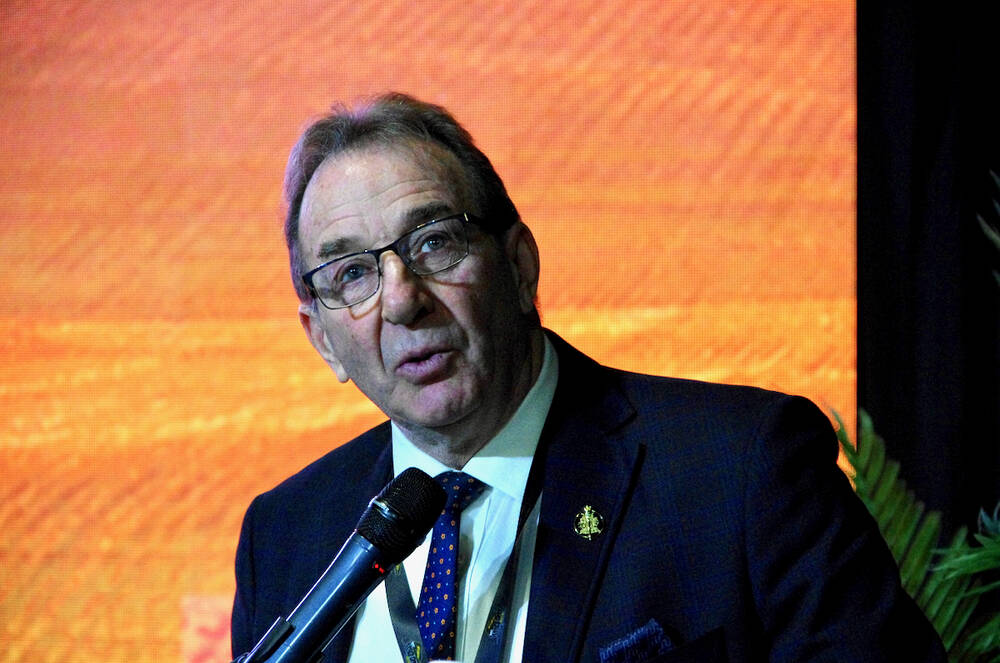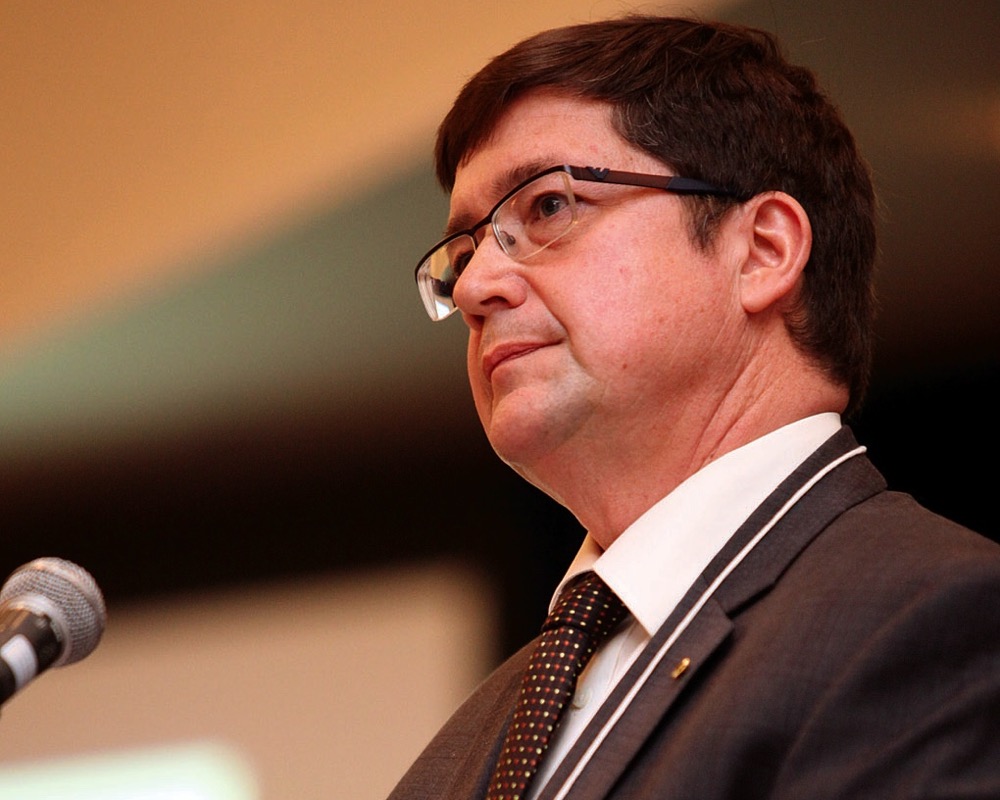Municipalities pay millions in provincial sales tax (PST) and they want their money back.
“The need for municipal dollars to be returned to the hands of municipalities is a resonating theme of this convention,” said Association of Manitoba Municipalities president Chris Goertzen at the opening of last week’s 17th annual convention here.
At issue is the eight per cent tax municipalities pay to the province on things such as insurance, electricity, phone and rent. When undertaking major capital projects the PST adds significantly to the final bill.
Read Also

AgriStability enrolment deadline extended
The deadline for Manitoba farmers to enroll in the AgriStability business risk management program has been extended by three months agriculture minister Ron Kostyshyn announced on Friday.
“Municipalities pay over $25 million each year in PST,” said Goertzen, the mayor of Steinbach.
Brandon mayor, Rick Chrest said his city could do a whole lot of other things with $1.2 million outlay in PST this past year.
“That money could go a long way towards road and sidewalk repairs and other infrastructure priorities for our residents,” Chrest said.
Manitoba’s cities pay the largest portion of the PST — 65 per cent — or $15.5 million of that $25 million. But it adds up for smaller centres too, said Virden mayor, Jeff McConnell. His town of 3,100 has paid over a million dollars in PST on projects, he said. “Why are we giving money back to the province when the money is spent more effectively on the project itself?” McConnell said.
Kam Blight said the RM of Portage la Prairie takes a hit from PST outlay as well.
“We pay about $118,000 a year in PST,” he said. “It may not sound like much but it’s actually huge.”
When the RM partnered with the City of Portage to build the PCU Centre, they paid $2.8 million in PST, he said. Big projects become additionally very expensive with this tax, Blight said.
“It’s a huge burden.”
The resolution calling for 100 per cent of the PST to be rebated passed, along with several others reflecting local government’s fiscal worries, including a call for a retooled taxation model that would be based on services provided, not assessed value of property.
Local leaders also want the province to rethink property-based taxation — municipalities’ only revenue stream — and permit local government to raise cash through other revenue sources.
“There is nothing more regressive and destructive than property tax,” said Swan Valley West Municipality reeve, David Minish during debate on that matter. This is a tax that is essentially penalizing anyone for making property improvements, he said.
“I get ratepayer after ratepayer saying this,” he said. “We really have to look at this. It is really destructive to the municipality the way we are forced to raise our money.”
A resolution calling for the province to pick up the costs incurred to amalgamated municipalities in 2015 was withdrawn after Municipal Government Minister and Brandon East MLA Drew Caldwell announced last week the government is creating a $1-million amalgamation support fund to help cover some of those costs.



















